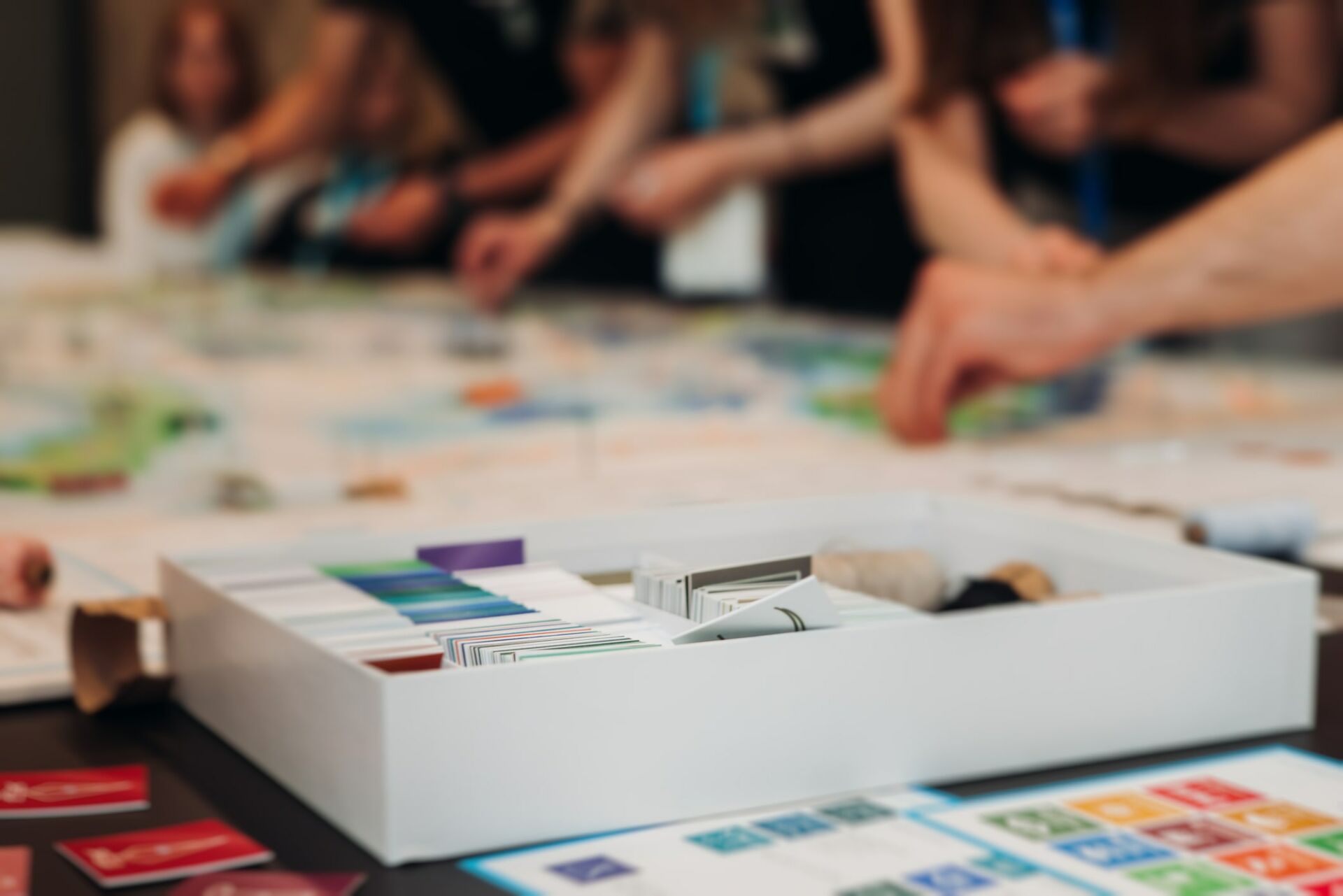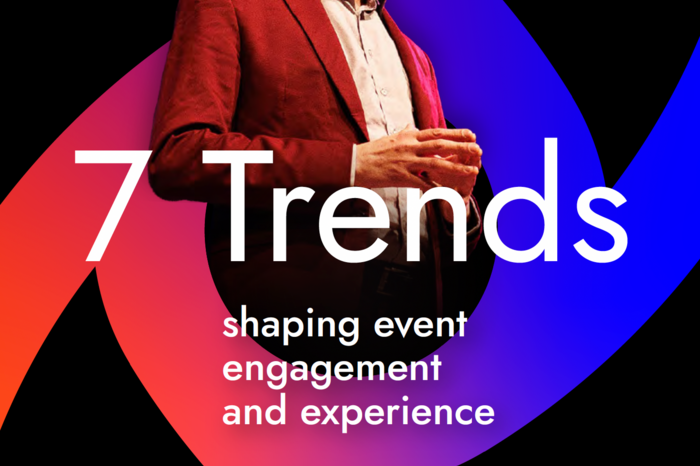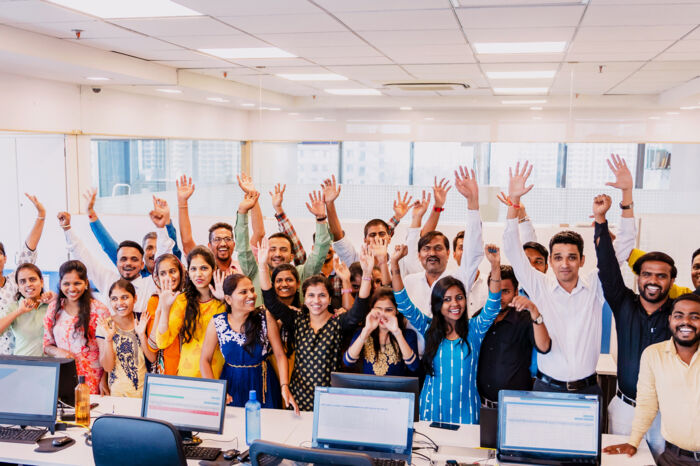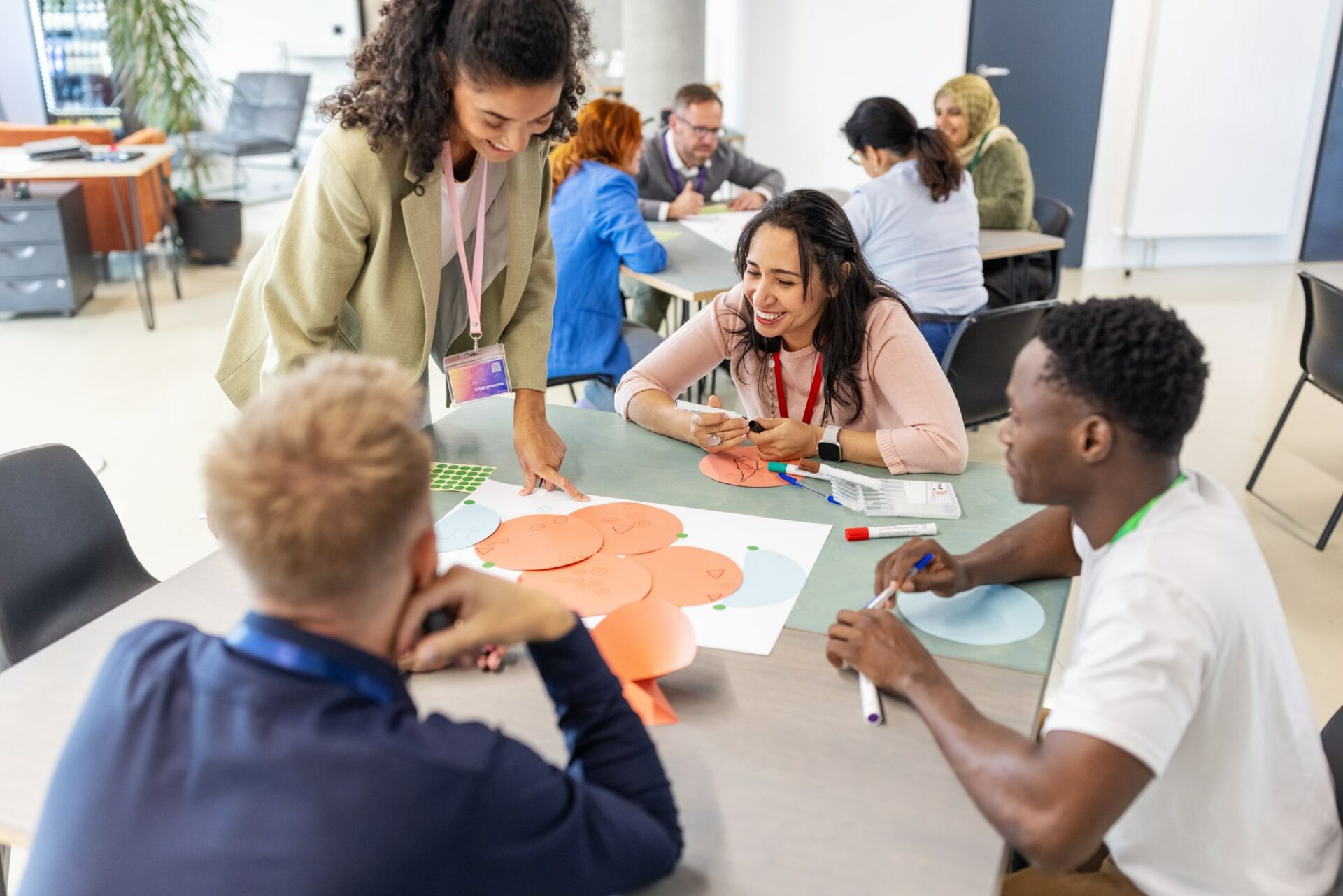
How internal gamification helps us deliver better outcomes for our clients
At MCI, we use internal gamified training to build teamwork and focus, but also to refine the skills that support stronger client outcomes. These workshops are designed to help our teams practise consultative thinking, ask the right questions and tailor solutions to real client needs and constraints. When our talents take part in these exercises, they step into the mindset of a strategic partner, thinking creatively while balancing budgets, timelines and objectives.
One such exercise involved a luxury-brand role-play where participants worked in teams to respond to a client brief. They were given paper dolls representing the brand and a wardrobe of miniature clothes and accessories, each symbolising a specific MCI service or solution. With a limited budget, each team had to design a custom “outfit” that solved the client’s pain points. The exercise culminated in a fashion show-style pitch, where teams presented their solution to a panel.
If we deliver the training via a lecture, it can be very dry. Instead, we use gamification to engage our teams. They received a brief to work on, had facilitators acting as the CEO of the client brand, and created a budget-limited shopping experience where they had to choose solutions carefully. The dolls and outfits made the abstract idea of tailoring a solution really tangible. They then presented it like a fashion show. It turned the training into something fun and highly interactive.
These sessions also help our teams understand what a successful pitch looks like and why some ideas fall short. After the presentations, participants receive feedback and scores, including critiques such as being overly persuasive and not consultative enough, or failing to stay within budget. This structured reflection sharpens our ability to adapt and improve.
By simulating high-pressure, consultative interactions, these internal workshops prepare our teams to support clients more effectively, whether we’re helping design an event, responding to a brief or developing a full-scale strategic solution.

Leadership retreats and executive summits
According to the McKinsey Quarterly: “Ever more complex competitive, customer, and stakeholder environments mean that the what of strategy needs updating to include role playing, scenario-planning exercises, and war games.”
Gamified exercises can transform strategy sessions into active problem-solving challenges. Participants work in teams on realistic scenarios, act as consultancy groups and pitch their recommendations to peers or facilitators.
This format helps senior leaders practise decision-making under constraints, refine communication strategies and strengthen alignment. By tackling shared challenges together, they build trust and discover new ways to collaborate.
It can also be as simple as a poll on an event app. See the case story of Mastercard’s European Business Summit here.
Sales conferences and kick-off meetings
Sales conferences often focus on aligning teams around new products and strategy. Gamification can help salespeople learn consultative techniques by placing them in realistic client scenarios.
Teams can work with a set budget to choose from product or service bundles, developing a tailored solution for a client brief and then pitching it to leadership or colleagues. This approach turns theoretical knowledge into practical experience, boosting confidence and skill in engaging with clients.
What happens when you take the Olympic Games and turn them into a next-level team experience? Have a look at the gamified kick-off challenge MCI designed for a life sciences client that energised teams and encouraged active learning through friendly competition.
Employee motivation and engagement events
Gamification is equally valuable in events designed to inspire and align employees. Role-playing exercises can place employees in leadership scenarios where they must choose between different change management tactics, develop an implementation plan and pitch their ideas.
This builds empathy for decision-making challenges, reinforces strategic priorities and gives employees an active role in shaping solutions. It also helps break down silos, encouraging collaboration across teams and departments.
Product launches and customer events
Launches, too, can move beyond traditional presentations by involving attendees in interactive workshops. Instead of simply showcasing features, organisers can design scenarios where customers (or sales teams) solve challenges using the new product.
Teams can work on creative ways to deploy a product, select supporting services under budget constraints and pitch their approach. This builds understanding of the product’s real-world value while making the experience memorable and engaging.
A great example of this was when MCI helped IBM create a gamified AI showcase for WatsonX AI’s launch at the latest retail expo in the USA. It became a resounding, global success, boosting awareness, engagement and demand.
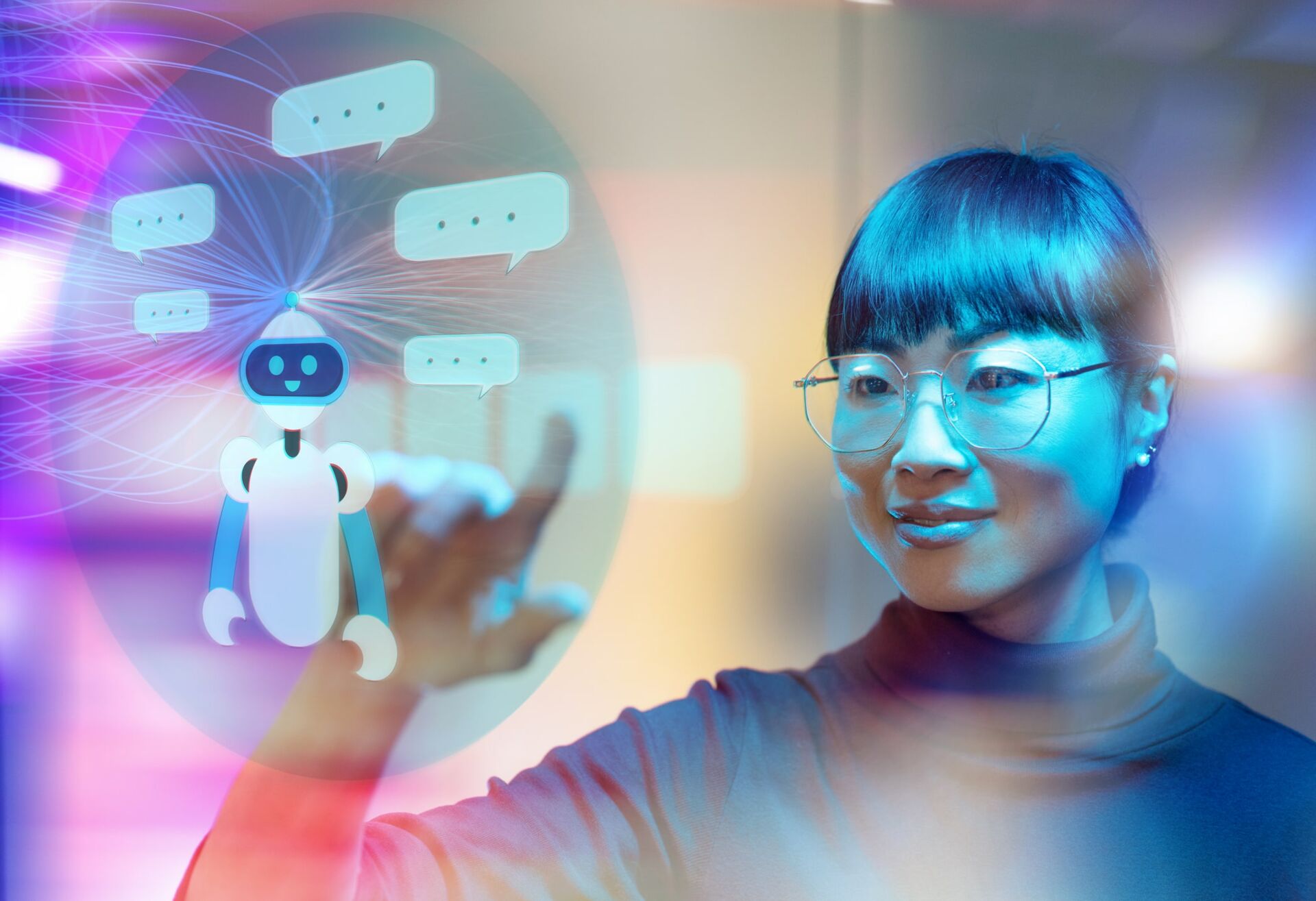
Partner events and sponsorship activations
Gamification can enhance partner events by making sponsor involvement meaningful. Attendees can use sponsor products and services as part of a problem-solving exercise that reflects real industry challenges.
This demonstrates sponsor value in context and creates a shared experience that goes beyond a standard showcase. By working together on realistic scenarios, attendees also develop stronger relationships with sponsors and with one another.
When cleverly designed, gamification not only increases engagement, it also provides insight into attendees’ preferences that is valuable to sponsors and can be used to personalise events.
Industry conferences and association congresses
Conferences and congresses often include parallel workshops and learning tracks. Incorporating gamified elements into these sessions encourages active participation as well as networking.
Attendees can work in groups to address sector challenges, select solutions from a set of options and present their recommendations. This turns learning into a collaborative, applied process that builds both skills and professional connections.
Discover how MCI helped increase delegate participation at the Australasian College for Emergency Medicine’s Annual Scientific Meeting: a reimagined delegate experience featured gamified networking zones, a Monopoly-style scavenger hunt, interactive social functions and a Challenge Zone with daily activities and board games, all supported by an event app with points and leaderboards to boost engagement.
Let’s create lasting impact
Gamification offers a way to make events active rather than passive, practical rather than theoretical. By challenging participants to solve problems, make strategic choices and communicate their ideas persuasively, organisers can deliver experiences that create real impact.
When MCI Spain & Portugal pitched to a prospective client in the gaming industry, they knew a standard presentation wouldn’t cut it. Instead, they designed MCIPOLY, a bespoke, gamified sales experience inspired by Monopoly.
Each square on the custom board revealed a different aspect of MCI’s services, from case studies to team highlights. Rolling the dice dictated the flow, turning a traditional sales deck into an interactive, client-led journey. Prizes, playful props and visual storytelling added surprise and energy.
What began as a 30-minute meeting became a 90-minute exchange of ideas, resulting in MCI winning the account and securing the client’s business. A perfect example of how creativity, when grounded in strategy, can drive extraordinary outcomes.
We work with clients to design equally engaging, strategically grounded experiences that leave a lasting impression. Our team can help you reimagine your next pitch, meeting or activation as an experience your audience won’t forget.

At MCI, the goal is to place the participant at the centre of every experience, combining creativity and strategy to achieve client objectives. Gamification is one of many ways we bring this promise to life and design events that engage, inspire and deliver lasting value.
Your audience is waiting to play. Contact us and give them the experience they crave.
